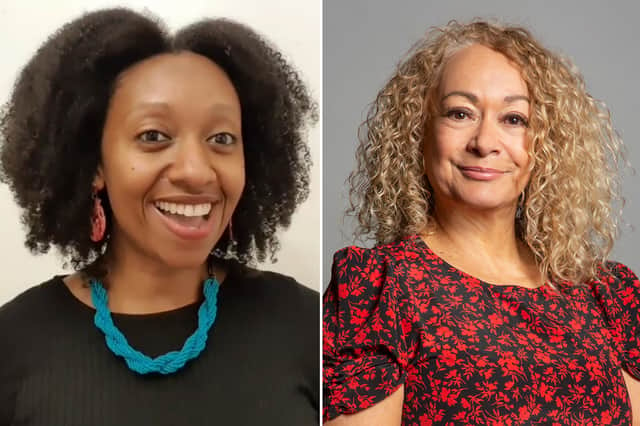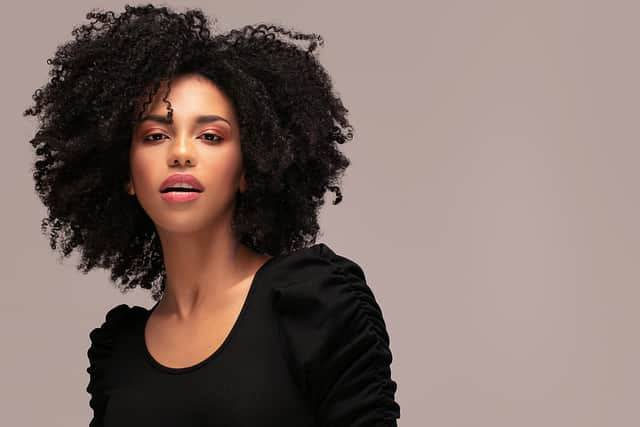What is hair discrimination? How black people are overcoming prejudice to reclaim afro hairstyles
This article contains affiliate links. We may earn a small commission on items purchased through this article, but that does not affect our editorial judgement.


Hair discrimination has become an increasingly important issue in today’s society.
This is backed up by a letter, signed by Labour MP Kim Johnson (Liverpool), the Halo Collective and Glamour magazine, that calls for textured hair to become a protected feature.
Advertisement
Hide AdAdvertisement
Hide AdThe main aim of the letter is to raise awareness of hair discrimination cases in the UK and underline it as a legal issue.
The organisers also hope the Equality and Human Rights Commission will develop education on various hairstyles and make afro-textured hair a protected characteristic.
This would ensure reports of racial discrimination cases are taken seriously.
The letter states: “The repeated failure to understand the issues affecting afro hair is a typical occurrence when dealing with a variety of institutions.
Advertisement
Hide AdAdvertisement
Hide Ad“The guidance will encourage educational and workplace establishments to rethink their concepts of ‘professionalism’ .
“In addition, work towards adopting more inclusive policies, which encourage and celebrate racial diversity.”
What is hair discrimination?
The use of offensive words to describe a person’s afro or asking to touch textured hair without consent can be classed as hair discrimination.
In the worst cases, children have faced disciplinary action in school and professionals have lost out on work due to styling their hair in natural locks, afros and twists.
Advertisement
Hide AdAdvertisement
Hide AdBeing accepted for who we are is something we can all get behind.
However, many black people face mounting pressure to wear their hair in a way that conforms to more European standards of beauty and spend huge amounts to chemically straighten and maintain their hair.
In the UK, workplace discrimination, on the basis or race, religion or gender, is illegal.
However, hair discrimination sits on blurred lines, even though it is an issue that black women constantly worry about.
The woman who invented a new comb for afro hair
Advertisement
Hide AdAdvertisement
Hide AdSwansea-based Dr Youmna Mouhamad is launching an innovative new comb for afro hair. She hopes to inspire young black women to get into engineering.
An enterprise fellowship from the Royal Academy of Engineering allowed Youmna to further develop her product.
Youmna was doing a PhD in Physics when she initially came up with the Nyfasi Deluxe Detangler, which provides a simpler way for conditioning natural afro hair.
“I want to be part of the change, so that a young person who comes after me feels much more heard and accepted,” she says.


Advertisement
Hide AdAdvertisement
Hide AdShe supported her studies by working as a nanny. The young girl she cared for used to cry when her hair was washed and conditioned.
Youmna wanted to provide a better experience for hair care which felt easier and pain-free.
The inventor shifted to engineering because of her desire to work on things she can actually touch and feel - as well as the process of creating something useful.
Although her experience as a black female student in science and technology was difficult at times, Youmna hopes to be a role model for young girls striving to work in the industry.
Advertisement
Hide AdAdvertisement
Hide Ad“My huge passion in personal development is actually empowering other people.”
People should feel confident to stand for what they believe is right for not just their hair, but themselves.
Rather than backing down and letting others have a say for them, they should feel empowered to take a stand and claim that they are in control over their hair, their wants and their lives. No one should decide or choose for them.
It is important for people to walk into their place of work and feel like they belong, regardless of their hairstyle.
Advertisement
Hide AdAdvertisement
Hide AdWhen a person feels uncomfortable or wrongly judged by their appearance, then there is an issue.


‘Hair discrimination is just not acceptable’
L’myah Sherae, founder of the All-Party Parliamentary Group on Equality in Education, says: “People feel they have to conform to mirror eurocentric hairstyles in order to progress in the workplace or within education.
“That is completely and utterly problematic.
“Can you imagine being a child and being told that your hair was not suitable for an educational environment, it’s just not acceptable.”
Ms Sharae hopes the letter will encourage the government to reflect upon current cases and implement changes as a result.
Advertisement
Hide AdAdvertisement
Hide AdThis includes publishing official guidance via the Department for Education and the government equalities office too.
Natural hair stylist Anastasia Chikezie, founder of Purely Natural hair salons, has been in the industry for 30 years.
With years of experience under her belt, Ms Chikezie has encountered many experiences concerning this issue.
She recalls a time she cut the dreadlocks off a newly qualified lawyer as he felt worried he would not be accepted.
Advertisement
Hide AdAdvertisement
Hide Ad“When taking corporate jobs, people are really concerned about the way they wear their hair,” she says.
Ms Chikezie now runs The Good Roots, a textured hair academy that provides education and style techniques.
After realising the need for European stylists to learn about textured hair, Ms Chikezie created the project to give useful information about the topic.
A message from the editor:
Thank you for reading. NationalWorld is a new national news brand, produced by a team of journalists, editors, video producers and designers who live and work across the UK. Find out more about who’s who in the team, and our editorial values. We want to start a community among our readers, so please follow us on Facebook, Twitter and Instagram, and keep the conversation going. You can also sign up to our email newsletters and get a curated selection of our best reads to your inbox every day.
Comment Guidelines
National World encourages reader discussion on our stories. User feedback, insights and back-and-forth exchanges add a rich layer of context to reporting. Please review our Community Guidelines before commenting.